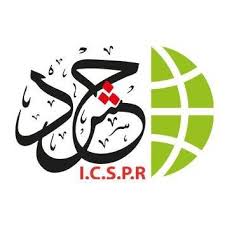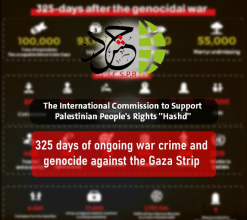
International protection between theory and practice
Research study
International protection between theory and practice
“Palestine Model”
Prepared by the researchers:
, Ali Khalifa
Reem Mahmoud Mansour
2022-2023
Abstract:
The world has become governed by many international and regional agreements with a network of mechanisms to protect and ensure the enforcement of human rights, in addition to national constitutions and legislation that provide for the protection and respect of human rights, but the principle of respect for human rights does not apply to all peoples and in all cases where it varies The extent of respect for human rights from one country to another, in connection with the nature of the system of government, respect for the rule of law, the independence of the judiciary, and the role of civil society institutions.
The study aims to achieve several objectives, including following the practical experiences of international protection and the most important lessons learned, identifying obstacles to international protection and ways to overcome them, in addition to examining the possibilities of achieving international protection for the Palestinian people, to outcome with recommendations to the decision-makers about future directions for the international protection.
In this study, the researcher adopted the descriptive analytical approach in terms of presenting the forms of international protection and analyzing them, to know the extent of the success of that experiment from its failure in the Palestinian reality.
The researchers’ outcome with many conclusions and recommendations during the preparation of the study, among the most important of these results: The concept of international protection in the Palestinian case is still shrouded in ambiguity and lack of sufficient knowledge of its international, regional legal and the framework of its right, it’s presented from the demands of the international protection, as the issue of international protection in the Palestinian case did not receive sufficient attention and attempt to invest or activate it.
The researchers recommend the formation of an international protection force within the tasks of (peacekeeping forces) with broad powers to protect civilians in Palestine, and that its work will continue until the end of the occupation, enabling the Palestinian people to self-determination, and its mission is to protect civilians from continuous military attacks that may result in war crimes And gross violations of human rights in Palestine and endangering the lives and security of civilians and their property at risk and destruction.
Introduction:
The end of the Second World War constituted a watershed in the issue of international intervention to protect human rights through the provision of international protection, as the charter emphasized for the first time the criminalization of war and aggression in international relations, and gave broad powers to the Security Council to maintain international peace and security and to suppress violations of human rights, and the emergence of the International law for the human rights as a new branch in international law, and the development of international humanitarian law with the four Geneva Conventions, and codified international criminal law by forming the Nuremberg and Tokyo Courts to judge war criminals, arrive to the International Criminal Court.
The developments in international law after the Second World War and until today opened up a wide scale for intervention in the case of its gross violation, the follow- on and prosecution of its perpetrators, although the issue of international protection still raises widespread controversy, especially as it represents a violation of state sovereignty and the rule of non-interference, in practice, multiple interventions took place under the cover of protection, some of which took place within the framework of international legitimacy decisions, and others were made by decisions of some countries without A legitimate cover such as the intervention in Iraq and other cases, and the inability of the international community to intervene in cases that require protection, most notably the Palestinian issue, which raised doubts about the selective nature of the policies of the major countries whose practice led to the politicization of protection and the rules of international law.
Given the history of the Arab-Israeli conflict, we see that international protection remained an urgent Palestinian demand after every aggression from the Israeli occupation, and with Palestine obtaining the membership of the observer state, it took more serious dimensions in the demands of civil society and the Palestinian leadership and was recently repeated in most of the speeches of President Mahmoud Abbas in the General Assembly of the United Nations And in the Human Rights Council, and the League of Arab States, as a result of the repeated attacks and violations in the West Bank and Gaza Strip, which constituted a violation of international law for more than seven decades.
But international protection in the Palestinian case remained a fixed idea, without clarifying the form of protection to be achieved, the mechanisms for achieving it, and without a Palestinian agreement on a vision for dealing with the international community to employ all opportunities to provide international protection, as a temporary step in the way of ending Israeli occupation.
Study issue:
What are the manifestations of international protection available to protect the Palestinian people?
This main question results in several sub-questions related to the international protection of human rights, the most important are:
- What is the concept of international protection, its types, and mechanisms for its provision?
- What is the form of international protection that protects the Palestinian people.
- What are the legal references for international protection.
- What are the opportunities and obstacles to achieving international protection for the Palestinian people.
- What is required for the Palestinians to provide protection in the face of the crimes and violations of the Israeli occupation.





